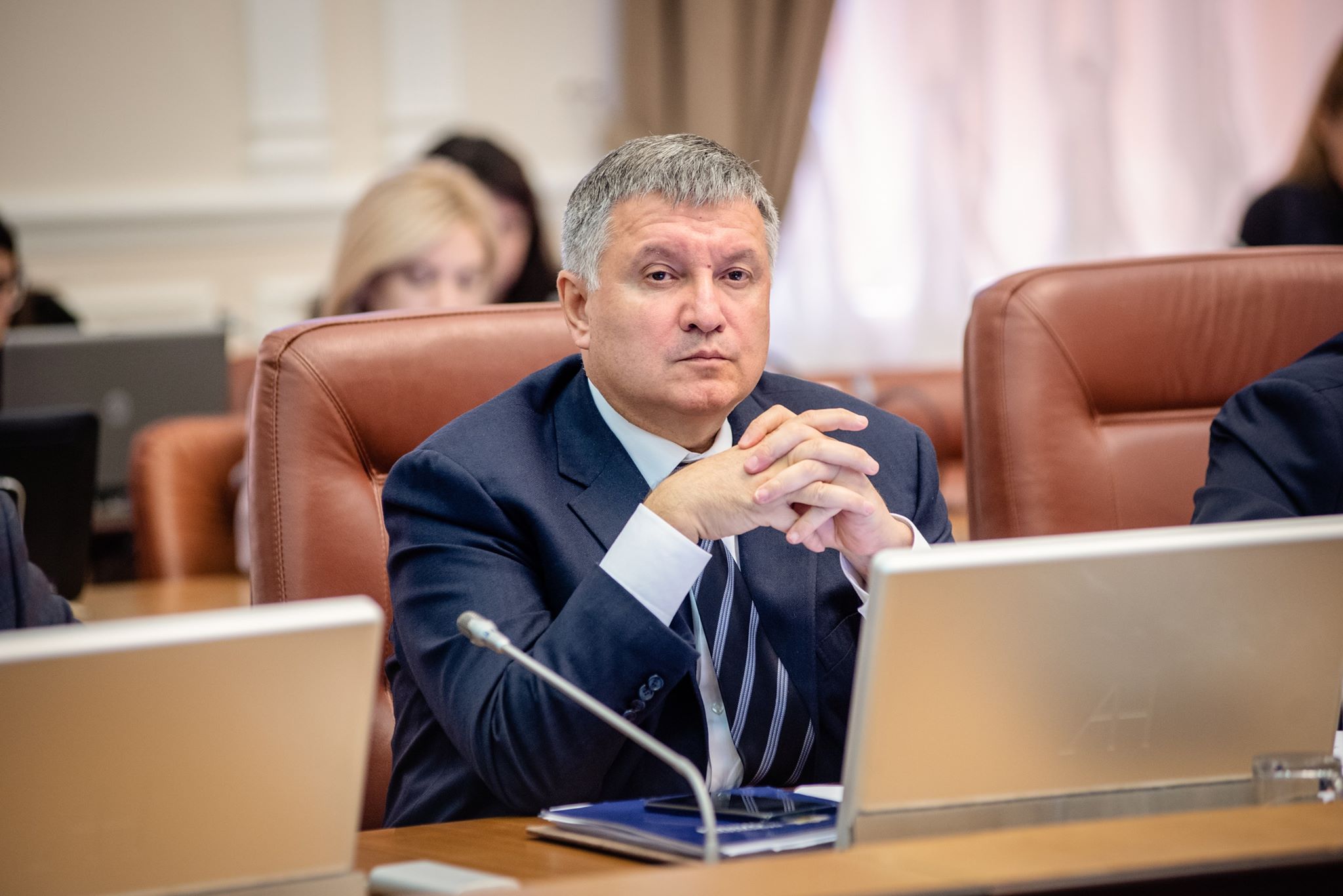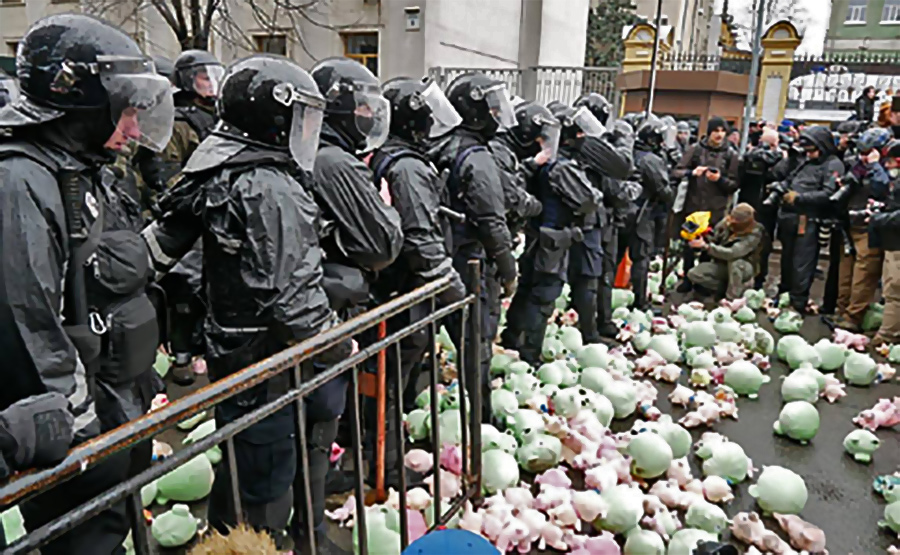ACT II – INSIGHT: RETAINING POWER BY ALL MEANS
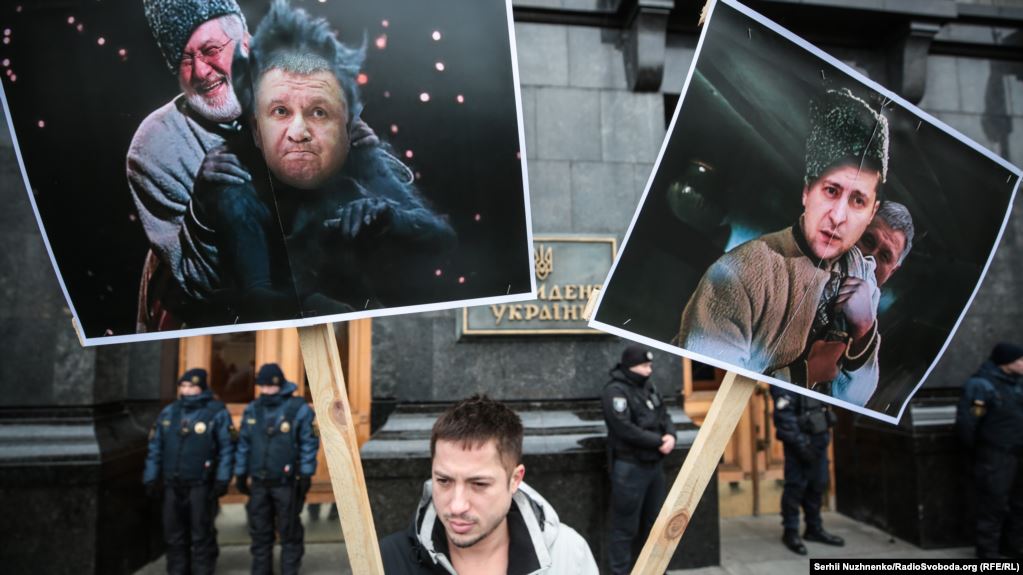
Avakov as beneficiary of the policy shift?
President Zelenskyy’s shift in personnel policy – from “new faces” to “experienced people” – which led to the replacement in short succession of the Head of the Presidential Administration, the Prime Minister, the majority of the cabinet and finally the Chief Public Prosecutor, serves also the interests of the Minister of the Interior, Arsen Avakov.
- First, this policy shift makes political participation of representatives of the old system normal again. Criticism of Avakov’s reappointment has thus been somewhat overtaken by events. According to government circles, he was already highly valued by those within the system for his experience.
- Second, the pressing need to succeed makes Zelensky vulnerable to and driven by populist demands. To declining popularity ratings he reacts by shifting the responsibility for the slow progress of reforms onto other actors. This reduces political thinking to the desire for quick achievements instead of long-term strategic concepts and goes hand in hand with a notion of sensational politics similar to Avakov’s own political style.
- Third, Avakov benefits from the shifts in the power structure the new personnel policy resulted in – even if they ostensibly diminish the influence of his most important ally, oligarch Ihor Kolomoysky.
Kolomoiskyi, at the time governor of the Dnipro oblast, contributed to the establishment of numerous volunteer battalions – amongst them the Azov battalion – with financial (around $10 million) and organizational support. Avakov and Kolomoiskyi have cultivated a lively exchange ever since.
Kolomoiskyi tirelessly praises Avakov’s achievements and abilities, he suggested him for the post of Prime Minister, and on the day of Zelenskyy’s inauguration, the two met for talks.
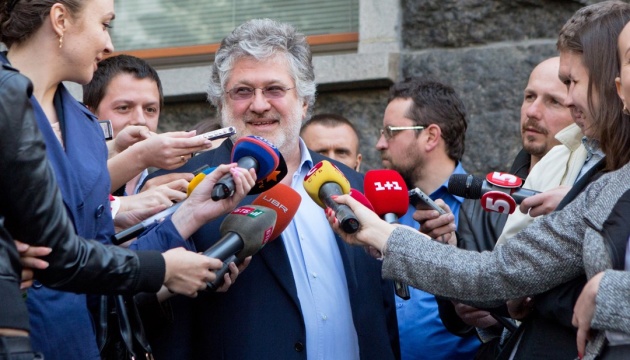
With situational differences, their interests overlap, especially in their resistance against the anti-corruption authorities, a reform-oriented (economically liberal) government, and a progressive Prosecutor General.
[highlight]Kolomoiskyi would particularly like to roll back the nationalization of his Privat Bank, initiated by Poroshenko at the end of 2016,[/highlight] and he demands compensation for losses incurred. Meanwhile, the banking law, intended to prevent that (and introduced upon demand by the IMF in return for urgently needed aid loans), has been passed by the Rada in the second reading.Lacking power resources of his own, Zelenskyy pushed through with his personnel policy changes also with the aim to not only deflate rumors regarding Kolomoiskyi’s influence but also to establish his own power vertical. This, however, strengthens the law enforcement agencies as a whole in Avakov’s favor.
Voting behavior in recent months has also shown that, due to the internal heterogeneity and the lack of factional discipline, the absolute majority of the “Servants of the People” exists only on paper. The centrifugal forces of the numerous interest groups are strong – as is their dependence on votes from outside of the party. [highlight]This strengthens the influence of parliamentary groups close to Avakov.[/highlight]
Being able to tip the scales, their political weight has increased – and with it the leeway for vote trading and backroom deals.
Power clusters in the Rada and its Committees
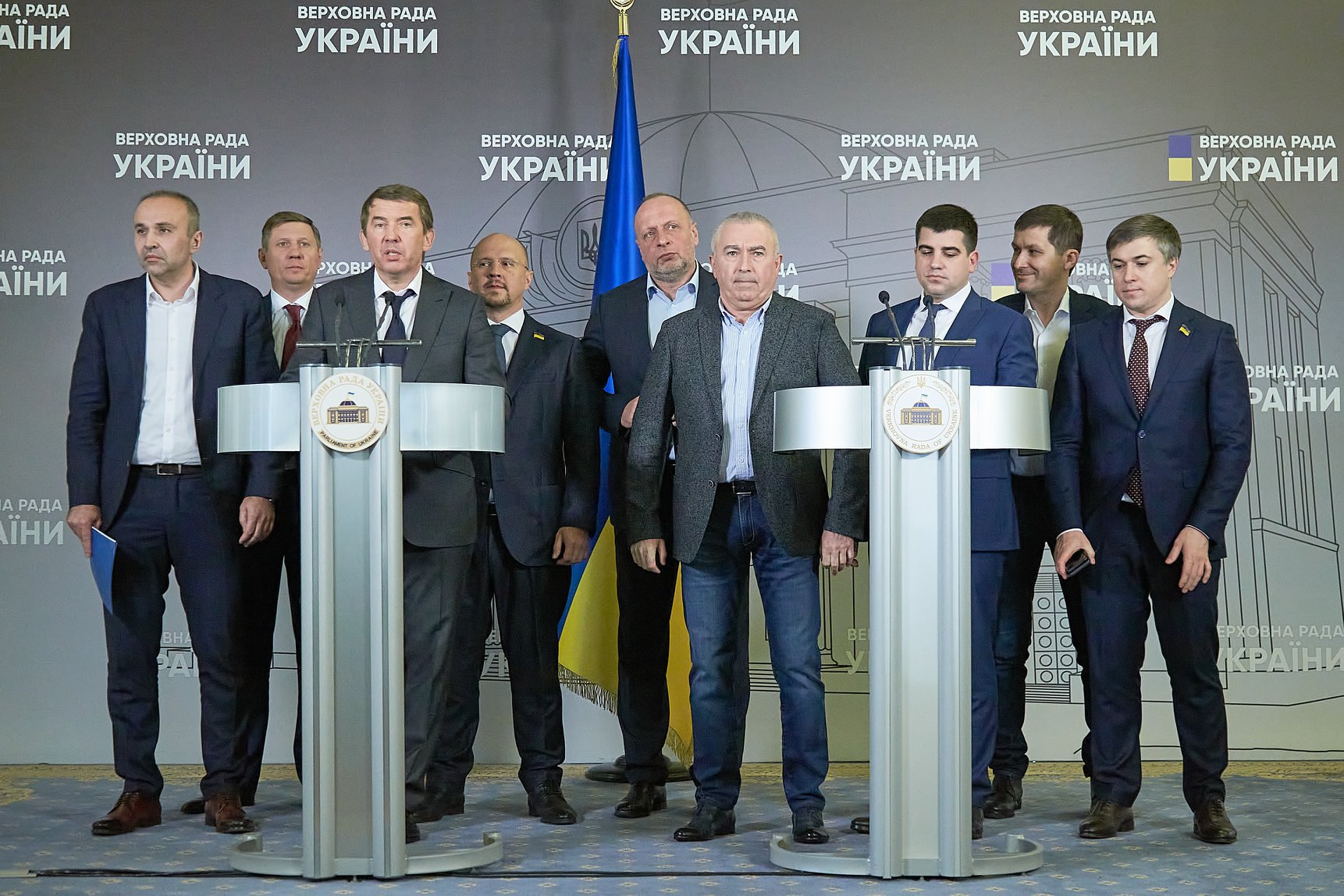
Avakov has a number of allies within the majority faction of “Servants of the People” (including some lawmakers from the Kharkiv region, where he has been active for a long time) and among non-affiliated lawmakers elected in majority constituencies.
Many of these lawmakers have corruption trials on their hands and thus share some interests with Avakov.
[highlight]Kolomoiskyi’s supporters within the faction gather around Oleksandr Dubynskyi and Maksym Buzhanskyi. [/highlight]Not all, but many of their political projects have played into Avakov’s hands. They also assumed a critical role in the dismissal of the Prosecutor General.Loyal followers also sit in a number of parliamentary committees, the most important among them being the Law Enforcement Committee. Its chairman, Denys Monastyrskyi, worked during the previous administration as an aid to Avakov’s close advisor (and current Deputy Minister of the Interior) Anton Herashchenko. Avakov’s influence on a number of committee members is significant – among them Oleksandr Bakumov, former Head of the Kharkiv Police Department, Deputy Committee Chairman Hryhoriy Mamka, till 2016 employed at the Ministry of the Interior, and former Avakov advisor Illia Kiva, with whom he has a deep and loyal relationship since their time in a volunteer battalion.
Significantly, Mamka and Kiva have gotten into the Rada running on the ticket of the pro-Russian party Opposition Platform – For Life. Yaroslav Bozhko, director of the Doctrine Center for Political Studies, is practically certain that a substantial amount of money has been invested to get them there. It would not have been the first time that parliamentary seats are bought. This does not imply that Mamka and Kiva are compliant puppets of Avakov, but the intersection of their interests is likely to be considerable.
Digression: an illustrious society
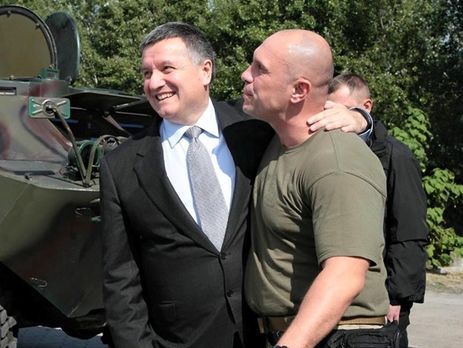
Hryhoriy Mamka‘s career is actually a textbook case of everything that goes wrong under Avakov. Mamka was socialized within the now-disbanded militia and in his years there held various investigative functions. As a team leader, he sabotaged an investigation into an oligarch’s fraud case. In 2015, he was suspended by Mikhail Saakashvili, then Governor of the Odesaoblast, who called him a “pillar of a system of corruption and extortion within the old militia.” A few months later he was reinstated by the corrupt Kyiv District Administrative Court. The same court foiled an attempt to dispatch him onto a post in the ATO zone.
Illia Kiva’s case on the other hand provides information about the monetization of Avakov’s power in the grey area between private economic interests and governmentally cloaked self-interest. In 2017, Kiva founded the department Bezpeka Zhyttia (Protection of Life) within the National Police with Serhiy Kniaziev (now advisor to Avakov) as its head. Officially, the department’s purpose was to help rehabilitate veterans and enlist their support in keeping up the public order.
In that light, it comes in handy that Kiva is the chairman of the All-Ukrainian Veterans Association. Several veterans work for the department – but as civilians and, according to experts, not subject to any applicable legislation. In fact, the facility operates with commercial purposes, generating revenue with the provision of security services. Members of the department seem to also enjoy attending rallies.

Last summer, for example, they disrupted a protest against the head of the Special Anti-Corruption Prosecutor’s Office, Nazar Kholodnytskyi, who is said to sabotage the work of the anti-corruption agencies. The counter-demonstrators – including Kiva in person – doused Vitaly Shabunin, the head of the Anti-Corruption Centre, with green paint. There is sufficient reason to suspect that the department is being used for political purposes.
Defense and attack: functions of the law enforcement committee
The Law Enforcement Committee is a bottleneck for draft legislation concerning law enforcement agencies.
This starts at agenda-setting: there is no open and critical discussion of the ministry’s deficits. The condition, that Avakov would be counterbalanced with new deputies appointed by the new party in power, has long been undermined. Of his six deputies, three already held their posts during the previous administration, and of the nominees proposed by the presidential office, only one was appointed.
The focus, however, is on hard politics. [highlight]The Committee sabotaged Zelenskyy’s attempt to demilitarize the Ministry of the Interior. [/highlight] A bill that would have removed the National Guard from Avakov’s control and placed it under the supreme commander-in-chief (i.e., the president), has lingered in the procedural no-man’s-land of the Committee for over six months.
Similar observations can be made regarding white-collar crime.
The Department of Economic Protection is situated within the National Police. What it actually does is in stark contrast to its nominal function: corruption is considered endemic there, [highlight]the department is used for extortion and bribery and set up as a classic pyramid, [/highlight]with a certain proportion of money “raised” at lower levels of service being passed on upwards.
In order to counteract this, the majority faction of the “Servants of the People” submitted a draft law that would have outsourced the department’s functions to a newly established special agency. Also, this bill was turned down by the Law Enforcement Committee. This must have been a welcome development for Kolomoiskyi, who saw himself threatened by a series of investigations into his Privat group by the new agency.
Furthermore, the Committee has [highlight]launched initiatives to extend the Ministry of the Interior’s competence and powers.[/highlight] For example, a draft law aims at granting the National Guard – analogous to the police – the right to make arrests for administrative offenses. Considering the concentration of power, Olena Shcherban of the Anti-Corruption Action Centre detects similarities with the Russian model. Another draft law, which has been in the Committee since January, would initiate the creation of parallel secret service structures within the National Guard, without specifying its objectives, scope, and limits.
According to Yaroslav Boshko, the activism recently displayed by Avakov in the fight against drugs might indicate, that he wants to claim this particular area from the jurisdiction of the Ministry of Health. An initiative to this effect has already been advanced by the “Kharkiv clan” in the Rada.
Reasons for the removal of the Prosecutor General

Against this background, the removal of Prosecutor General (PG) Ruslan Riaboshapka can serve as an instructive case study. As if through a magnifying glass, the influence of power clusters emerges clearly, as do the consequences of the policy shift and the resulting benefits for Avakov.
The parliamentary initiative for the vote of no confidence against Riaboshapka was launched by the aforementioned Dubynskyi and Buzhanskyi. As their own faction partly opposed Riaboshapka’s removal – six months ago he had been elected with 312 deputy votes – the “Servants of the People” depended on the votes of Dovira and Za Maibutnie – and on votes from the Opposition Platform.
In addition, 17 representatives of the prosecution committee voted for Riaboshapka’s resignation. How come?
The first reason to consider is Riaboshapka’s will to reform. The office of the PG is highly politicized and most often part of the president’s power vertical, as the PG is elected by majority vote in the parliament, the majority being usually formed by the president’s party. In the past, the PG would be an instrument of political repression and corruption. Since the PG occupies a prominent position in the institutional structure of law enforcement agencies, he or she can easily sabotage the work of other institutions.
Ruslan Riaboshapka stood out from this tradition and was perceived both at home and abroad as a progressive reformer – and rightly so, considering his many years of work in governmental and non-governmental anti-corruption contexts and his intention to tackle reforms.
The second reason is his integrity. Riaboshapka opposed efforts to initiate a politically motivated trial for abuse of power against Poroshenko. A show trial against Poroshenko disregarding the rule of law as well as procedural standards would logically follow from Zelenskyy’s strategy to boost his popularity ratings by populist razzle-dazzle.
Thirdly one needs to look at the changes in the power structure. Only after Andriy Yermak followed Andriy Bohdan as Head of the Presidential Administration, the PG’s removal made it onto the agenda. Bohdan was behind a number of personnel decisions – in addition to Prime Minister Honcharuk, whom he personally introduced to the president, he had also proposed Riaboshapka.
Until his appointment, Riaboschapka had served as Bohdan’s deputy and advisor on anti-corruption issues in the presidential administration. Yermak revised the decisions of his predecessor. Together with the President’s Chief Advisor, Serhiy Shefir, he pushed ahead with the reshuffle to the cabinet Shmyhal and the replacement of Riaboshapka by the new PG Iryna Venediktova.
Seen in this light, Riaboschapka’s refusal to take action against Poroshenko was no more than a welcome external reason for the power vertical to seize control by securing a loyal PG.
Consequences of the removal of the Prosecutor General (I): Efficacy beats integrity. How does this concern Avakov?
[highlight]Riaboshapka’s removal indicates an overall increase in power by the siloviki and their political culture.[/highlight] Within the inner circle, Bohdan represented a kind of informal counterweight to the interests of the law enforcement agencies. He was responsible for reforms in this area and had used his function to push for reforms within the Ministry of the Interior. He also introduced the apparatus to a political culture of open criticism, activism, and direct control. With this, he made no friends among the stolid siloviki.To an even greater extent, the same applies to Riaboshapka.
A key moment in this context is Zelenskyy’s speech in the Rada on March 4, shortly before Honcharuk’s resignation. When he castigated the power, corruption, and inefficiency of the law enforcement agencies, the president’s criticism was not aimed at the heads of the Ministry of the Interior or the SBU, but, of all people, directly at Riaboshapka.
And Zelenskyy might even have believed what he said. For while the siloviki constantly lobbied the president, underlining their powerlessness in the face of the prevailing conditions and absolving themselves of their responsibility, Riaboshapka rarely showed up to convince the president with arguments.
However, this is first and foremost a victory for short–term efficiency thinking at the expense of the rule of law. It was Buzhansky of all people, an ally of Kolomoiskyi, who brought forward as an argument for Riaboshapka’s dismissal, that his reforms had led to a backlog of around 2,000 unprocessed cases. The dilemma between corrupted efficiency and a reform-induced standstill went unmentioned.
Avakov and the murders
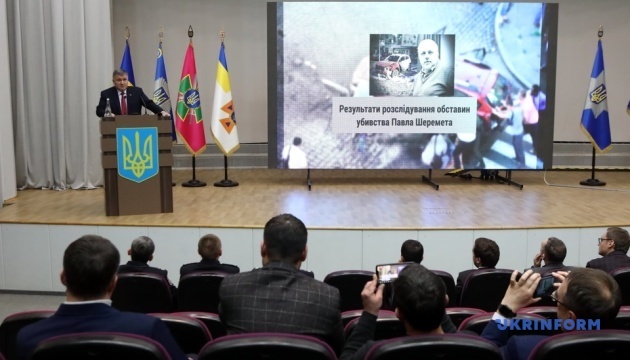
In this respect, a comparison of Riaboshapka’s and Avakov’s roles in the Sheremet murder case is especially telling. The solving of high-profile murder cases was among the essential conditions for Avakov to be allowed to remain in office.
In December 2019, Avakov presented five suspects in the Sheremet investigation at a press conference – all of them were involved in different capacities in the ongoing war against the Russian invaders in Eastern Ukraine, and all of them are well-liked in society. Soon thereafter, Riaboshapka called the evidence into question and refused to bring the suspects to trial. Large sections of civil society and many journalists were also skeptical about the evidence, going as far as to speak of a show trial.
- Read also: Proof in Sheremet murder case sorely lacking as prosecutors accused of doctoring evidence
While Avakov is being rewarded for his staged successes, Riaboshapka has been punished for the refusal to match him and go for a politically motivated trial of Poroshenko.
By the way, at the mentioned press conference, Avakov clearly expressed his opinion about activists:
“We’ll lock you up if we want to. You are all an organized criminal group.”
His words were addressed to a group of demonstrators protesting against the detention of the suspects.
In many of the cases, this explains his lack of interest in investigating the networks of involved local authorities and judges reluctant to risk scandals. The same applies to pogroms against Roma, which are usually committed by radical right-wing groups under the auspices of various law enforcement agencies and treated with great leniency by the police.
- Read also: Attacks on civic activists in Ukraine reaching critical level, encouraged by unreformed police
Consequences of the removal of the Prosecutor General (II): a setback for reform forces
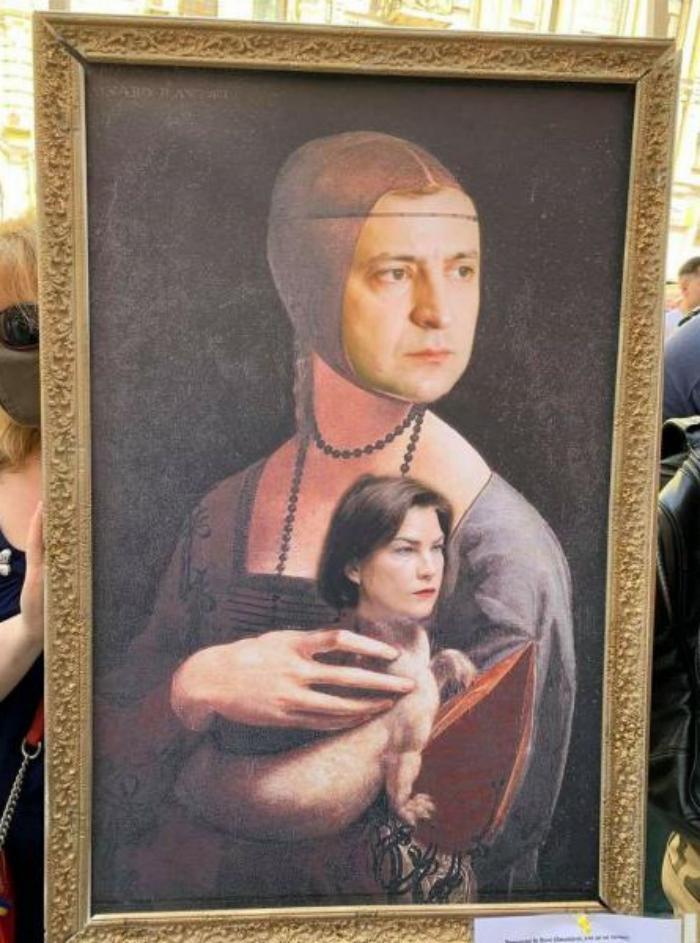
For Avakov and all those with an interest in a corrupt judicial system, the first official acts of the new PG Iryna Venediktova are very convenient.
While purging the apparatus of Riaboshapka’s people, she recently appointed Oleksiy Symonenko and Andriy Liubovych as her deputies.
Liubovych, at the time Head of the Prosecutor’s Investigation Department in the Dnipropetrovsk oblast, has allegedly been involved in the prosecution of demonstrators during the Maidan revolution. Symonenko is said to have initiated a politically motivated trial of Tymoshenko for embezzlement under the Yanukovych administration.
Iryna Venediktova also revised Riaboshapka’s dismissal of corrupt prosecutors and excluded representatives of civil society, international organizations, and embassies from the selection process. A number of prosecutors have already been reinstated.
Significantly, also Andriy Portnov spoke out in favor of voting Riaboshapka out of office. Portnov, a lawyer, worked in the Yanukovych administration and is not only close to Dubinsky, but also the legal advisor to the Kolomoysky Group. He returned to Ukraine in May 2019. The media often refer to him as the “grey cardinal” of the judiciary. In fact, he is a kind of “corruption manager” who controls loyal courts. The strengthening of the Yanukovych clan also strengthens Avakov.
Resilient cliques undermine the judicial system

To add to that, Iryna Venediktova is an old acquaintance of Avakov. They know each other from their time in Kharkiv, and both are connected by an institutionally consolidated old-boy network.
Before taking office, Iryna Venediktova worked as Head of the State Bureau of Investigation (DBR). While still in this function, she declared in an interview with the Ukrainian weekly “Fokus” in mid-March, that the allegations against Avakov of sabotaging the Maidan murder investigations were unfounded.
Venediktova’s husband Denys Kolesnik works at the cyber police department of the National Police and is very influential in the DBR. He supposedly attends important meetings and even influences personnel decisions.
At the same time that Iryna Venediktova was elected to the parliament, Denys Kolesnik received a promotion. According to Ukrainska Pravda, he is said to have pushed for the appointment of Ruslan Biriukov as his wife’s advisor. Biriukov had previously worked at the National Police and belonged to the DBR’s personnel selection committee in 2018. It is said that Biriukov sometimes seemed like the real head of the DBR. Venediktova considers these accusations to be fictitious and defends herself by legal means against them.
After Iryna Venediktova replaced Roman Truba, the scandalous Head of the DBR, his deputies Olga Varchenko and Oleksandr Buriak – both People’s Front quota people and loyal to Avakov – retained their posts. As a result of the strong politicization, the entire selection process of officials is considered corrupted – and Buriak, in the game since 2017, is no exception.
- Read more: Ukrainian Parliament reboots State Bureau of Investigations, unblocks probe into Maidan massacre
Even after new deputies were elected, the cliques have proven their resilience. Olga Varchenko was given a post in the Investigation Department of the National Police. At the beginning of the year, Oleksandr Buriak was appointed by Venediktova as Senior Prosecutor at DBR, which took over the investigation of the Maidan murders from the PG’s office at the end of 2019.
Venediktova’s new deputies Babikov and Sokolov make for dubious personnel decisions and got their posts in a manipulated selection process – Oleksandr Babikov used to be Yanukovych’s former lawyer and Oleksandr Sokolov is considered to be a typical secret-service-type apparatchik. In spite of their transfer to the PG’s office, Babikov remained Deputy Head of the DBR, while Sokolov was promoted to the post of head of this agency. His wife Anna Sokolova works for the law firm of a certain Natalia Kolesnik – coincidentally mother to Denys Kolesnik and thus Venediktova’s mother-in-law. The family circle rounds itself.
Avakov most likely profits directly from the personnel switches at the DBR, taking only little interest in solving the Maidan murders, since, according to the neo-patrimonial logic, a number of suspects still active in the police apparatus enjoy his protection. The old Yanukovych cadres do probably share his attitude.
In general, the DBR matters to Avakov, as it has taken over investigative functions from the PG’s office, leaving to the PG only the implementation of the actual court proceedings. The fact that Denys Monastyrsky, of all people, was considered as new Head of the DBR speaks volumes. However, his current position was considered to be too important to give up.
Sand in the gears
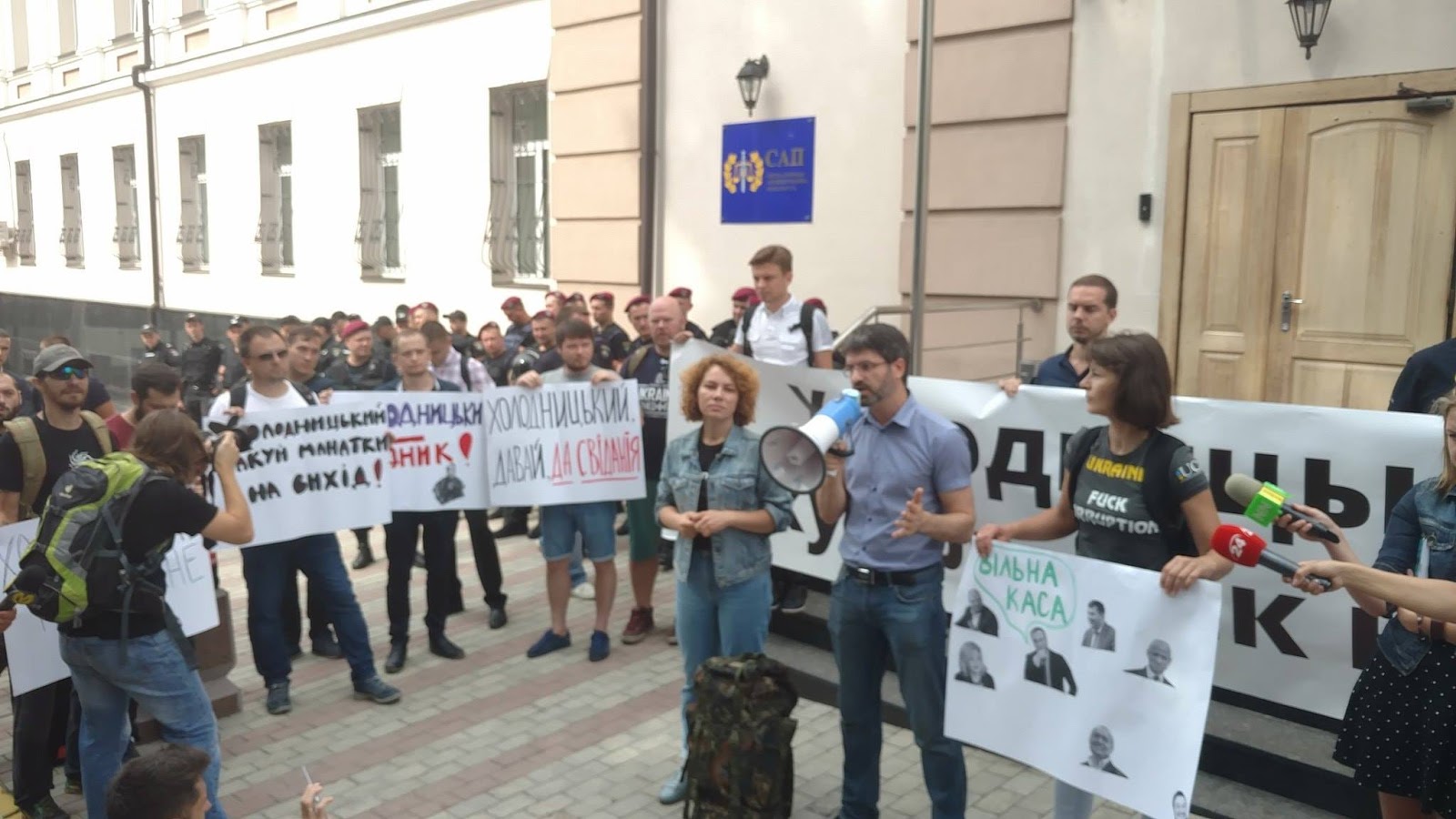
The importance of investigative powers is particularly evident with the Special Anti-Corruption Prosecutor’s Office (SAPO). Avakov has friends there too – first and foremost its head, Nazar Kholodnytskyi, who is said to be siding with Kolomoiskyi. The office is supposed to work closely with NABU, with the SAPO prosecutors guiding the investigative work of the NABU, who in turn prepare indictments, which are then channeled by the SAPO for court proceedings.
In reality, “hot” cases often peter out. There are three ways to do that – all of them facilitated by sloppy legislation with unclear areas of competence.
1. First, SAPO does not pass material on to NABU, but to the National Police – who drags its feet, declares the case null and void or otherwise blocks it. Under the leadership of Artem Sytnyk, NABU is considered the last anti-corruption agency with integrity and, above all, an independent stance. As a result, corrupt and/or overburdened ordinary police officers are charged with handling cases involving their own patrons.
2. Second, NABU forwards the cases to SAPO, who waters them down. This is exactly what happened with the Rucksack scandal. In 2016, NABU opened an investigation against Avakov’s son Oleksandr and the Deputy Minister of the Interior, for allegedly embezzling half a million Euros in 2014, at the peak of the war with Russia, by selling the ministry 5,000 overpriced and substandard military rucksacks on behalf of a buddy from Kharkiv, businessman Volodymyr Lytwyn.
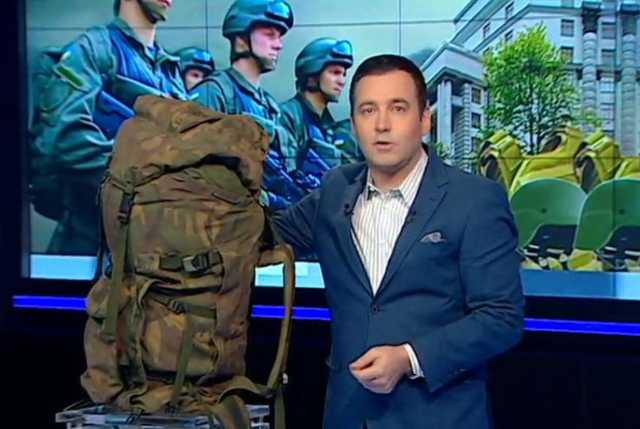
In 2018, the results of the investigation were passed on to SAPO – and Kholodnytskyi had the case closed. This move was commonly perceived as the result of a political deal with Avakov.
The Rucksack case also makes abundantly clear what Avakov is ready to resort to if his immediate interests are at stake.
After the case was closed, the police conducted a nightly search at the house of Nadiya Burgova, a court expert who had prepared the report on the price and quality of the rucksacks. During this search, drugs were planted on her and the research material for the report was confiscated without a court order. Later she was accused of fraud, but the case was not taken to court – the evidence was too shaky.
3. Third, also the Prosecutor General can let cases dry out by handing them over to the National Police. Poroshenko’s confidant and Riaboshapka’s predecessor Ihor Lutsenko, for example, as well as his deputy Volodymyr Krivenko, made active use of this possibility.
Last man standing
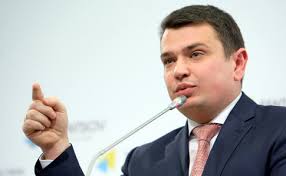
From Avakov’s point of view, the very institution that could be most dangerous to him is also the only one beyond his direct influence. All corruption cases within the top political elite are investigated under the Head of NABU, Artyom Sytnyk. In addition to the backpack scandal, Avakov is directly under scrutiny in the investigation into the purchase of (with half a billion UAH) grossly overpriced Mitsubishi cars. This case was also petered out and closed by SAPO.
The stakes here merge with Kolomoiskyi’s, as NABU also investigates criminal cases related to PrivatBank and UkrNafta. An investigation concerning Kolomoiskyi’s airline MAU was transferred by SAPO from NABU to the National Police.
Accordingly, Avakov gets tough with Artem Sytnyk, whereby mudslinging in the media and Avakov’s personal insults on Twitter are comparably harmless features. Due to high procedural hurdles, however, it is difficult to vote Artem Sytnyk out of office. Avakov, therefore, resorts to fabricated corruption allegations brought forth by the National Police and his allies in the Rada. A law that could oust Sytnyk was introduced into the Rada by Kolomoiskyi’s confidants at the end of April. However, it is unclear whether it will make it onto the parliamentary agenda.
Conclusions
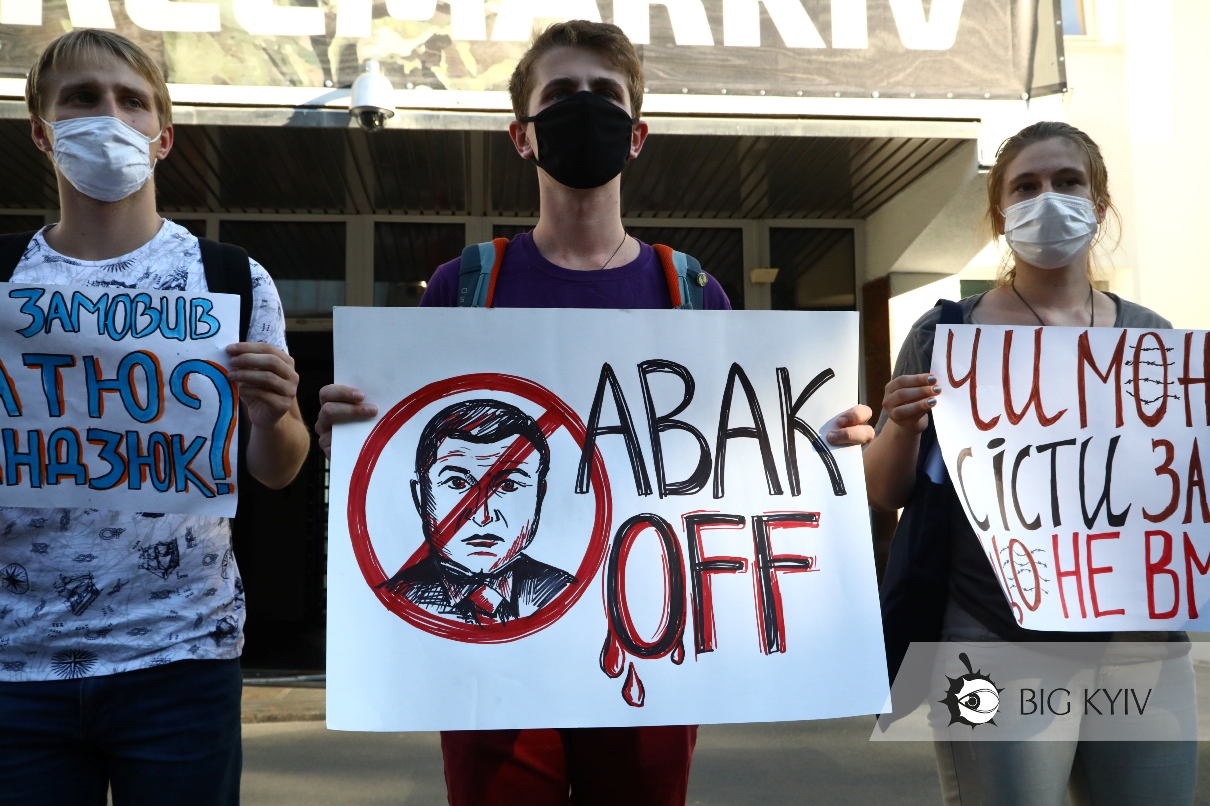
The appointment of Iryna Venediktova strengthens the president’s power vertical. As on the political level, the president has up until now been more of a mediator of existing power centers instead of actively building his own.
A loyal PG and a compliant SBU make it easier for him to take action against unwelcome competitors – and allow him to bring the majority faction in parliament back on track with the threat of criminal proceedings, if necessary. Even Artem Sytnyk could be ousted from his post, as influential groups around Avakov, Kolomoiskyi, and their cronies increasingly support this.
A new wave of dismissals at the end of April raised suspicions. Serhiy Verlanov, Head of the State Tax Service, and Maksym Nefyodov, Head of the Customs Authority, were dismissed on the very same day as SAPO initiated the investigation against Ruslan Riaboshapka.
Shortly thereafter, a large-scale search operation at customs authorities’ heads took place, led by the SBU (the only executive authority to be part of the presidential power vertical from the beginning). The lowest common denominator of the three men mentioned: they are all reformers who took action against corruption. One can only hope that these personnel changes are nothing more than the usual aftershocks of a government reshuffle.
As long as the personnel changes are not targeting Avakov himself or his supporters, they are in his interest.
Changes to the contrary are unlikely anyway – the dismissals too clearly bear the signature of influential groups around Avakov. Lawmaker Oleksandr Dubynskyi had already suspected in early March that Serhiy Verlanov would soon lose his post.
In the medium to long term however, the consolidation of power blocs will inevitably lead to intensified competition. Both sides are eager to get as many links as possible in the chain of investigation – allegation – conviction under their control.
To the extent that Zelenskyy leaves it to the old entourage to settle accounts and the law enforcement agencies act ever more repressively, the protest potential within the population is likely to increase and be fuelled by its patriotically inclined, well-organized members – which in turn would only increase Zelenskyy’s dependence on his patron saint Avakov.
To the chagrin of Ukrainians, the familiar game is obviously going into the next round.





